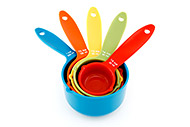
Struggling to lose weight and not achieving your goals can be frustrating. Here are eight common weight loss mistakes you might be making, along with tips on how to avoid them.
Focusing only on diet and exercise
Diet and exercise are important components of the weight-loss equation, but they are not the only factors to consider. Stress levels and sleep patterns also significantly influence your success. One study found that individuals who reported low stress levels and slept between six to eight hours per night were more likely to achieve a weight loss goal of 10 pounds.
When we experience stress, the body releases hormones such as adrenaline, corticotropin-releasing hormone (CRH), and cortisol. Adrenaline and CRH can temporarily suppress appetite, while cortisol actually increases appetite and has a longer-lasting effect after a stressful event. Research indicates that people who get less than six hours of sleep per night tend to have elevated cortisol levels. Additionally, insufficient sleep leads to an increase in the hormone ghrelin (boosts appetite), and a decrease in leptin (suppresses appetite).
All or nothing
A healthy lifestyle is not an all-or-nothing approach. A single setback shouldn’t lead to a downward spiral of overeating and missed workouts. Healthy habits — like eating nutritious foods, controlling portion sizes, and exercising regularly — should be integrated into the natural ups and downs of life. For instance, if you indulge in dessert at a dinner party, you can adjust by reducing your calorie intake at the following meals. If a late meeting causes you to skip your workout on Monday, don’t let that derail you for the rest of the week. Instead, consider adding an extra 10 minutes of exercise from Tuesday to Friday to make up for it.
Not eating enough
Many weight loss plans often involve drastically cutting calories or skipping meals. However, these practices can lead to excessive hunger, which may result in overeating. The American College of Sports Medicine (ACSM) provides important nutrition and weight loss guidelines stating that women should consume no fewer than 1,200 calories per day, while men should not consume fewer than 1,700 calories per day. Failing to meet these minimums can negatively impact bodily functions and metabolism.
Drinking your calories
Research indicates that we often do not adjust our calorie intake to account for the calories in beverages. For example, if you consume a 250-calorie sweetened coffee instead of having a snack, you are unlikely to reduce the calories in your lunch or dinner to offset that extra intake. The consumption of high-calorie drinks — such as energy drinks, alcohol, coffee, soda, and juice — can cause your daily calorie intake to increase, making weight loss more challenging. It's important to keep a record of all the drinks you consume, along with any extras you add, such as cream, sugar, or flavored syrups. Additionally, remember that even occasional sips throughout the day contribute to your overall calorie count.
Underestimating portion sizes
When following a weight loss plan, it's important to weigh or measure your food to understand what a healthy portion size looks like. This knowledge will make it easier to estimate your portions accurately when you're eating out. Additionally, you can use common household items to help estimate your food intake. (See Tips for Estimating Serving Sizes)
Forcing yourself to love an exercise
There are countless forms of physical activity, so there's no need to force yourself to enjoy one that isn't a good fit for you. Just because you've heard that indoor cycling burns a lot of calories or your best friend loves kickboxing doesn't mean these classes will work for you. When starting out, try as many options as possible, and don’t limit yourself to the gym. A weekly exercise routine can include a variety of activities like 30 minutes of jumping on the trampoline with your kids, a 60-minute family bike ride, 45 minutes of yard work, 60 minutes of yoga in your living room, and a 30-minute swim. Embrace what you enjoy!
Faith in the fads
It’s easy to be drawn in by the appeal of quick-fix diets and supplements. However, despite their claims, the most effective way to achieve lasting weight loss is through a healthy lifestyle that includes a balanced diet and regular exercise. Eliminating entire food groups, following detox diets, or relying on diet pills will not lead to sustainable success. These methods are not effective in the long run, and any weight lost is likely to come back.
Expecting too much, too soon
Weight loss is a gradual process. In the first week or two, you might experience a quick drop in weight primarily due to water loss. However, as you start to lose fat, the changes on the scale may slow down. Don't get discouraged by this! Experts recommend aiming for a weight loss of no more than two pounds per week to ensure it's healthy and sustainable long-term. Stay committed; time will pass, and before you know it, you'll reach your goal weight.



 8 Ways to Overcome a Lack of Support for Weight Loss
8 Ways to Overcome a Lack of Support for Weight Loss
 6 Tips for Controlling Portions
6 Tips for Controlling Portions
 Some People Dream of Success
Some People Dream of Success
 5 Breakfasts Under 300 Calories
5 Breakfasts Under 300 Calories
 4 Things to Know About Negative Calorie Diets
4 Things to Know About Negative Calorie Diets
 Healthy Ways to Motivate Your Friends
Healthy Ways to Motivate Your Friends
 15 Bites and Nibbles That Keep You From Losing Weight
15 Bites and Nibbles That Keep You From Losing Weight
 Recover from Weight Loss Setbacks
Recover from Weight Loss Setbacks

 Pinterest
Pinterest RSS Feed
RSS Feed